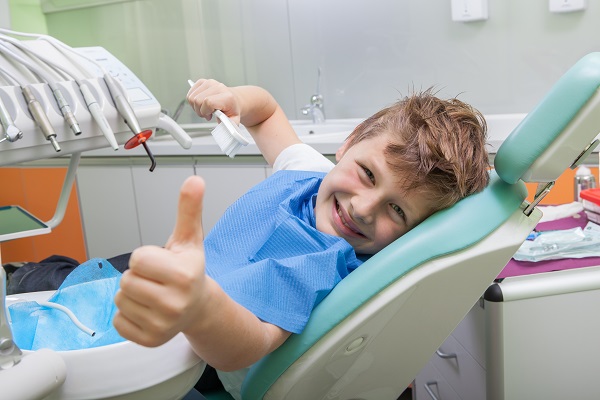From a Pediatric Dentist: Why Kids’ Primary Teeth Are Important

A
pediatric dentist prefers to take a proactive approach regarding the health of their patients’ teeth. They offer preventative care that ensures that primary and permanent teeth stay healthy.
You might be wondering if there is any reason to take care of baby teeth, since they fall out eventually. The truth is that the health of the primary teeth affects the health of the permanent teeth.
The role of a pediatric dentist in children’s oral health
A pediatric dentist offers first-line care for their patients, and they prefer to provide preventative rather than corrective care. The dentist will recommend that caregivers schedule routine checkups once their child starts teething. If the child turns one before their teeth erupt, the parent should still schedule a dentist’s visit. These visits serve the following purposes:
- Routine checks enable a kids’ dentist to monitor the growth and development of a child’s teeth and jaws
- The visits are opportunities for caregivers to receive advice and guidance on how to take care of the child’s teeth
- Routine dental visits also enable dentists to catch and manage oral health issues in their earliest stages
- Pediatric dentists can create good childhood experiences that eliminate the fear of dentists
These are the main reasons that a parent should invest in finding a kids’ dentist whom their child likes.
The role of primary teeth in a child’s development
A common misconception is that since baby teeth fall out, anyway, there is little need to fuss over them. Nothing could be further from the truth, and the following explains why.
1. A child needs their milk teeth to speak
People use their teeth to pronounce words like “that,” “sit,” or “share.” This means children need their milk teeth as they learn to talk. When baby teeth fall out too soon, a child may develop speech difficulties.
2. The child needs their milk teeth to eat
A child’s diet should expand as they grow, meaning they should graduate to foods that involve chewing. Healthy milk teeth enable the child to eat nutritious foods that are tough and crunchy. Weak, loose, or missing baby teeth limit a child’s diet and in turn, limit the nutrients that the child can take in.
3. Milk teeth are placeholders for permanent teeth
A baby tooth holds the space that its replacement will occupy, and it keeps the other milk teeth in position. If one tooth falls out too soon, the remaining milk teeth start to shift, which can lead to a bad bite. Without intervention, a bad bite with the milk teeth will translate to a bad bite with the permanent teeth.
4. Tooth decay in primary teeth can translate to unhealthy permanent teeth
Tooth decay in one baby tooth increases the risk of tooth decay in adjacent milk teeth and the ones that have yet to erupt. It also increases the risk of tooth decay in permanent teeth. A problem tooth that falls out too early can lead to a bad bite that requires orthodontics.
Frequently asked questions about pediatric dentists
Let us go over the answers to frequently asked questions about pediatric dentists and baby teeth.
1. How do I keep my child’s baby teeth clean?
Parents should start cleaning their child’s mouth from birth. A clean washcloth can be used to gently remove plaque from their gums after meals. Parents can switch to a soft-bristled toothbrush once the first set of teeth starts to erupt. Low-fluoride toothpaste should be used because young children are more likely to swallow toothpaste than older children. Always clean the child’s mouth before putting them to bed, as that is the most vulnerable period for teeth.
2. When should a child come in for their first appointment?
The American Association of Pediatric Dentistry recommends bringing a child in for their first appointment by their first birthday. This is about the time that the child’s first set of teeth starts to emerge. The initial visit helps familiarize the child with the dentist, and it provides an opportunity to detect any developing issues.
3. How do I prevent baby bottle decay?
Baby bottle decay is linked to prolonged nursing. It can result from a child feeding on a bottle or nipple as they go to sleep. This leaves their teeth vulnerable to the sugars in the milk at the most vulnerable period for the mouth. Saliva helps remove oral bacteria and the acids that they make, but its production slows down during sleep, increasing the risk of tooth decay.
A healthy smile is a good thing for your child
Talk to our pediatric dentist to find out how to keep your child’s mouth in excellent condition. They are available to take appointments and to answer any questions that you have. Contact our Phoenix office to find out more.
Request an appointment here: https://camelbackpedoortho.com or call Camelback Pediatric Dentistry & Orthodontics at (602) 595-3531 for an appointment in our Phoenix office.Check out what others are saying about our dental services on Yelp:
Pediatric Dentist in Phoenix, AZ.




